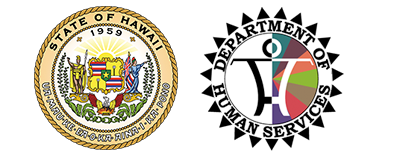FIRST-TO-WORK PROGRAM
The First-To-Work Program (FTW), implemented in SFY 1997, provides case management, employment and support services to work eligible individuals of TANF (Temporary Assistance For Needy Families) households, pursuant to Public Law 104-193, “Personal Responsibility and Work Opportunity Reconciliation Act of 1996,” reauthorized by the “Deficit Reduction Act of 2005.” In addition, the FTW Program services other work eligible individuals that are unable to work due to temporary disability, rehabilitation from substance abuse, and with domestic violence status.
FTW Program Goals
The goals of the FTW Program are 1) to assist work eligible individuals (WEI) of TANF families to obtain employment and progress towards self-sufficiency, and 2) to assist other work eligible individuals (OWEI) to rehabilitate so they may engage in work activities and obtain employment.
FTW Program Services
Participants of the FTW Program participate in various work activities that emphasize job readiness training, skill-building, adult and vocational education, and employment placement.
- Job Readiness Training
Job readiness training prepares FTW participants to effectively seek and obtain employment. Training includes job preparedness classes; assistance with resume development and preparing job applications; career exploration; interviewing skills; job search counseling; and life skills training.
- Employment Placement
FTW participants are referred to many unsubsidized and subsidized employment opportunities with private sector employers. In SFY2005, the Department implemented the SEE Hawaii Work (Supporting Employment Empowerment) Program to provide on-the-job training for FTW participants that may have little or no work experience or basic work skills.
- Vocational and Adult Basic Education
The FTW Program assists participants to increase their employability by obtaining their high school diplomas through adult basic education; specific trade, occupation or vocational training; and post-secondary education.
- Skill Building
Skill building activities improve the employability of FTW participants by providing work experience and training through volunteer and community service placements with public agencies and private non-profit organizations.
The FTW Program provides supportive services such as child care subsidies, transportation reimbursement, tuition and books for education, and work-related expenses.
FTW Program services are provided through partnerships and contracts with public and private agencies, such as Department of Labor and Industrial Relations (DLIR), Department of Education, the University of Hawaii System, City and County of Honolulu, and Goodwill Industries of Hawaii.
